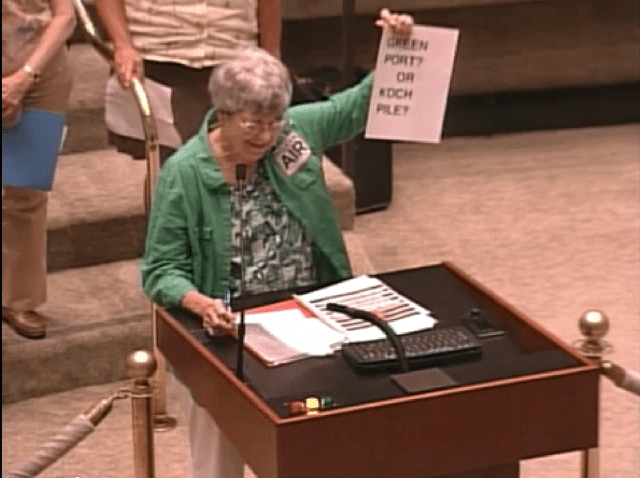Just a day after the Oregon Department of State Lands shot down a proposal to export 8.8 million tons per year of coal to Asia from the Port of Morrow in Boardman, Oregon, the Long Beach City Council achieved the opposite.
In a 9-0 vote, the Council voted “yay” to export both coal and petroleum coke (petcoke, a tar sands by-product) to the global market — namely Asia — out of Pier G to the tune of 1.7 million tons per year. Some have decried petcoke as “dirtier than the dirtiest fuel.“
More specifically, the Council determined that doing an environmental impact statement before shipping the coal and petcoke abroad was not even necessary.
A decision originally made in June and then appealed by Earthjustice on behalf of the Sierra Club, Natural Resources Defense Council (NRDC) and Communities for a Better Environment, the Council shot down the appeal at an August 19 hearing.
“We are very disappointed about the decision, but that does not diminish the amazing victory in Oregon,” Earthjustice attorney Adrian Martinez said in a statement provided to DeSmogBlog via email. “The decision in Long Beach just highlights the grasp that the fossil fuel industry has on the City’s leaders.”
The Earthjustice legal challenge and the the subsequent August 19 hearing was not about banning coal or petcoke exports. Rather, Earthjustice and its clients requested that the City of Long Beach do an environmental impact statement for two companies given contracts to export the commodities for 15-20 years.
One of those companies, Oxbow Carbon, is owned by the “Other Koch Brother,” William “Bill” Koch. Like his brothers David and Charles Koch, he has made a fortune on the U.S. petcoke storage and export boom. Also like his brothers, he is a major donor to the Republican Party.
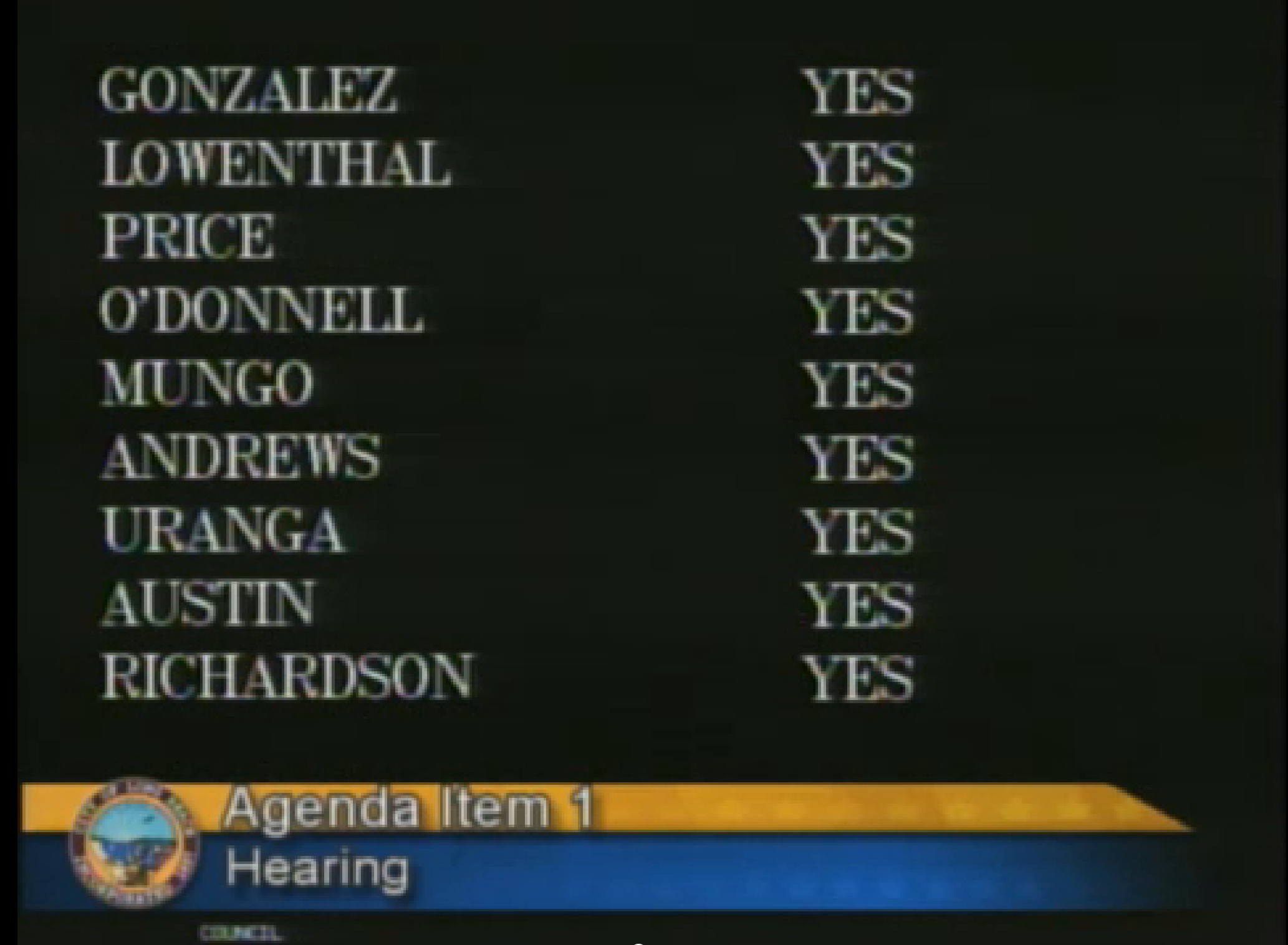
Photo Credit: City of Long Beach
But the Long Beach City Council voted “nay” in unanimous fashion to do the environmental impact study. Earthjustice had argued it was required to do an environmental review under the legal dictates of the California Environmental Quality Act (CEQA).
“It’s disappointing that the City would turn a blind eye to even doing some basic analysis of the impacts of this decision to lock into 15 years of exporting dirty fuels abroad,” said Martinez.
“More than 100 residents showed up at the August 19 hearing to support pausing this deal and are deeply concerned about how climate change and pollution from exporting dirty fuels impacts them and future generations.”
Adding insult to injury, Sierra Club endorsed Vice Mayor and City Council member Suja Lowenthal in her Democratic Party primary race for State Assembly, which she recently lost.
The floodgates have been opened, then, to export massive amounts of coal and petcoke from the self-styled “Green Port.”
It comes at a time when numerous California refineries are retooling themselves to blend more tar sands diluted bitumen (“dilbit”), which gets to the Golden State mainly via rail.
Further, it happens at the same time critics say the Obama Administration is exporting climate change by exporting coal abroad — often to countries without any meaningful regulations — even as his administration regulates U.S.-based coal-fired power plants.
Union, Oxbow Representatives Oppose Enviro Review
While the majority of those who testified at the August 19 hearing before the Long Beach City Council voted spoke in favor of doing an environmental impact statement, several industry executives and union workers spoke out against it.
“First and foremost, you should know the facilities on Pier G are world-class operations that set the bar for environmental excellence in our industries. We are very proud of what we do here with the port,” Clayton Headley, Oxbow’s vice president of supply for the Pacific region stated at the hearing.
“The assets and operations of the Port of Long Beach…are known throughout the world as examples of how things ought to be…Like the Port, we take our environmental stewardship seriously.”
A few members of organized labor also took the side of the “Other Koch Brother” at the hearing.
Jesus Guzman, a unionized employee at Oxbow who has worked there for 18 years, said that Oxbow has a “great track record and everything has been for the better” since he began working there.
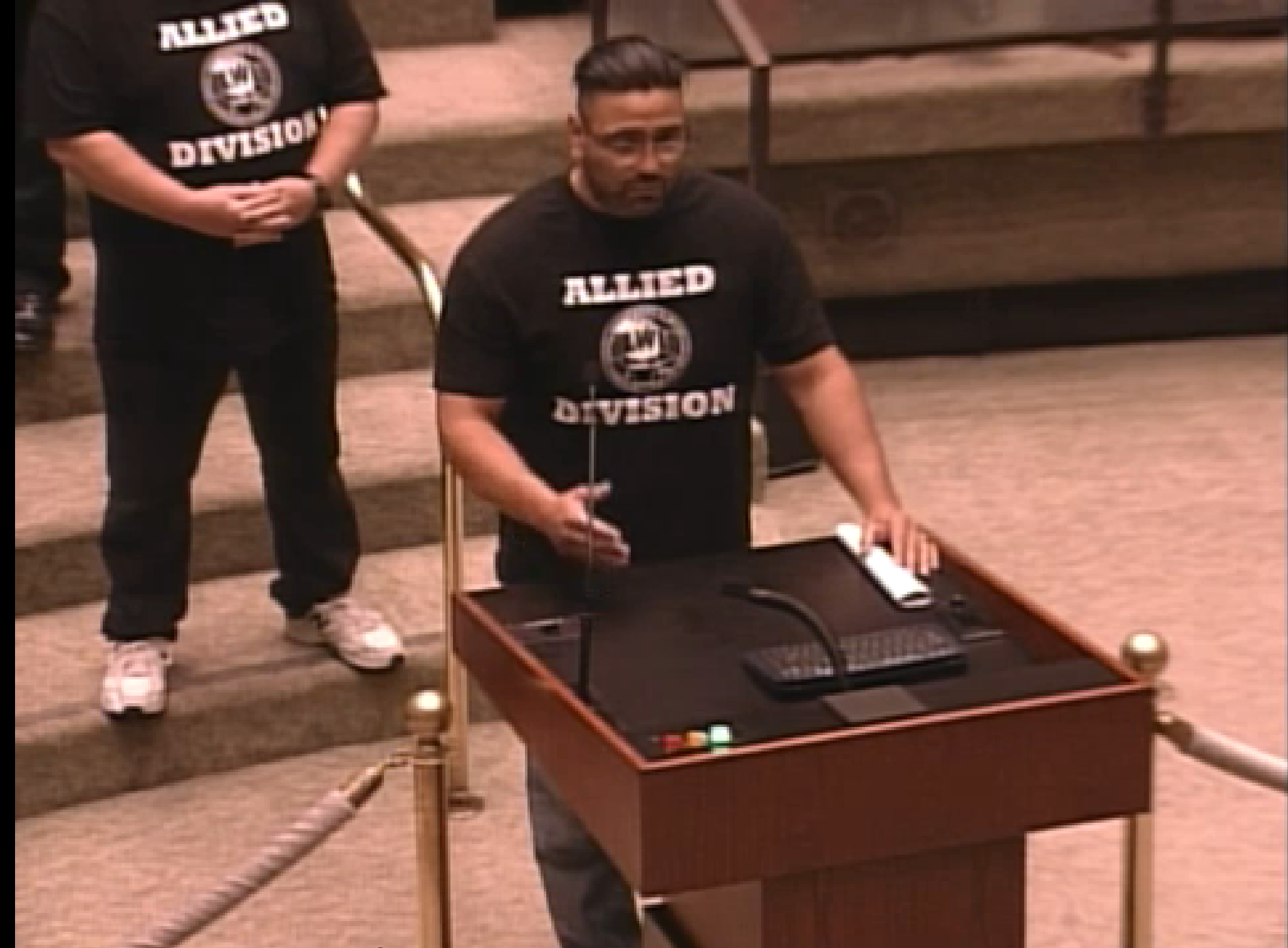
Jesus Guzman, Oxbow Employee; Photo Credit: City of Long Beach
“I work 12 hours a day and I have a clean bill of health. I don’t have asthma, I’m not diabetic and [again] I work 12 hours a day,” said Guzman. “I’m here to say please allow me to be a sole provider for my family for 15 more years.”
Bobby Olvera, Jr., President of International Longshore Workers Union (ILWU) Local 13, also spoke out against an environmental review at the hearing.
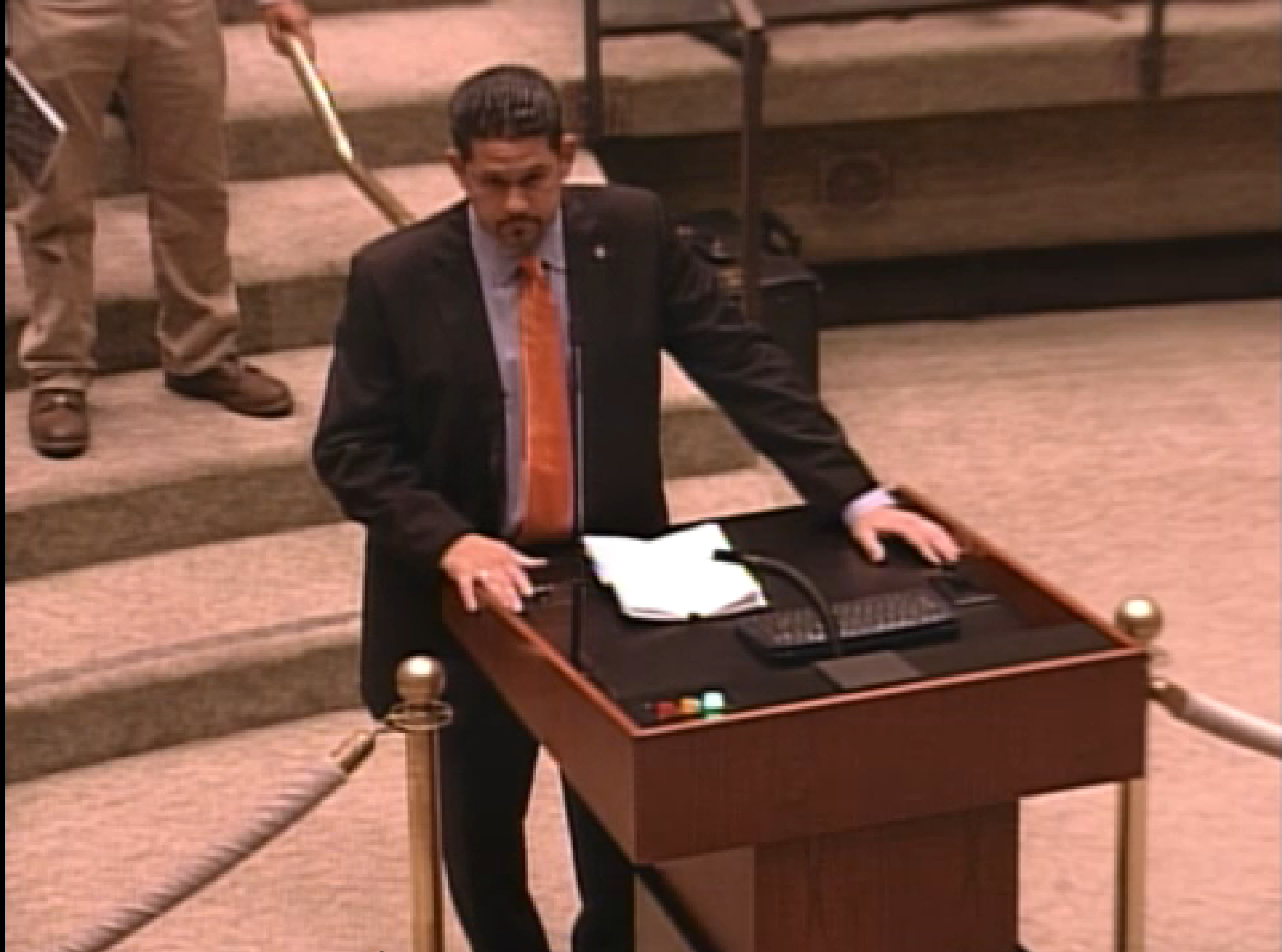
Bobby Olvera, Jr.; Photo Credit: City of Long Beach
“I can’t believe we have to come here”
On the other side of the debate, some citizens argued this is not a debate over jobs, it is a debate over having to follow basic bread-and-butter environmental law.
“I can’t believe all of us have to come here and practically beg you for a CEQA review,” said Long Beach citizen Catherine Castro. “I must’ve been asleep at the wheel thinking our elected officials were watching over us. My fault. But now I’m not asleep anymore. Those of us who put you in office, you’re here to serve and protect us and the city.”
Another citizen, Jeff Miller, sang a similar tune.
“We had a couple of speakers who spoke about the economic benefits of this project and touted their community involvement, as well, and they sort of implied that 40-50 years of operating the way they have is reason enough to allow them to continue operating as they are because of these benefits. The implication is that these things will go away if they have to do the right thing. And I know we don’t believe that,” said Miller.
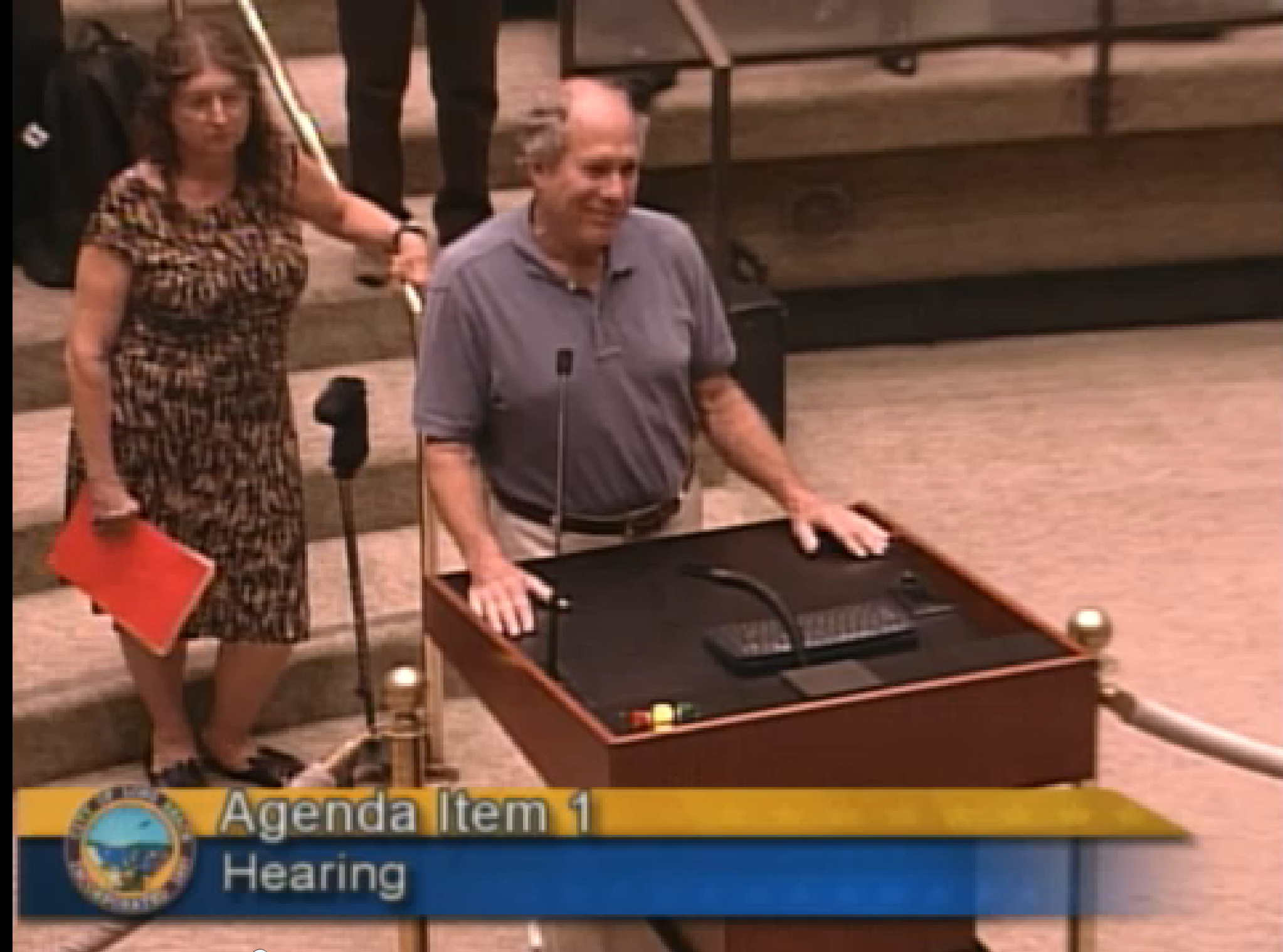
Jeff Miller; Photo Credit: City of Long Beach
“We’re not asking that these operators necessarily leave the port: they’re not going to do that. Every day I find a nice layer of film of dark, black dust on my porch,” Miller continued. “We breathe that dust,I don’t know how much of that is attributable to this operations or the port operations, but shouldn’t we find out? That’s what an environmental impact report will tell us.”
According to an NRDC blog post, Earthjustice and its clients (of which NRDC is one) are still in the process of figuring out what their next steps will be after the ruling.
Photo Credit: City of Long Beach
Subscribe to our newsletter
Stay up to date with DeSmog news and alerts


